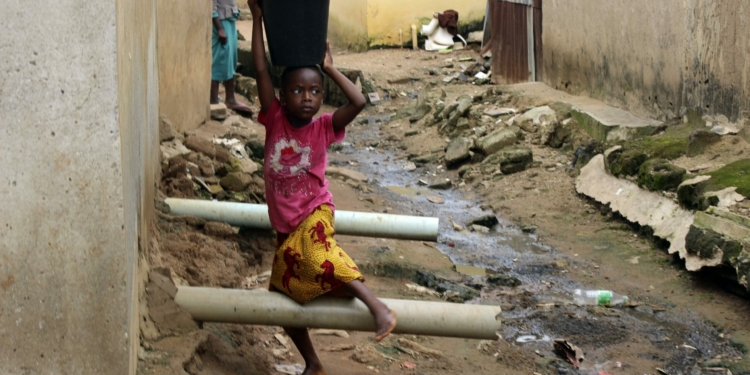The Nigeria Centre for Disease Control and Prevention (NCDC) on June 13th alerted the public to increasing cholera cases nationwide, with 30 deaths, 1,141 suspected cases, and 65 confirmed cases reported. Disclosing this in a public advisory, the Director-General of the Centre, Dr. Jide Idris, said the cases that occurred between January and June 11, 2024, were reported from 96 LGAs in 30 states.
On July 4th, the Minister of Water Resources and Sanitation, Joseph Terlumum, while raising concerns, said a total of 63 deaths and 2,102 suspected cases had already been recorded as of Wednesday, July 3, 2024, since the outbreak of the epidemic, with recent statistics placing Lagos State on the leaderboard of cholera cases.
Cholera is a bacterial infection of the intestines caused by the Vibrio cholerae bacterium (a bacterium that produces toxins and causes cholera, a potentially fatal diarrheal disease). People can get cholera by drinking water or eating food contaminated with the bacteria. The bacteria are often passed through the feces of an infected person, and cholera can spread quickly in areas with poor sanitation and inadequate sewage and drinking water treatment.
This is not the first time Nigeria has experienced a cholera outbreak. The disease has been endemic since its first reported cases in 1972, with outbreaks often resulting in high case fatality rates, such as the devastating 1991 outbreak which saw over 59,478 cases and 7,654 deaths (with a case fatality rate of 12.9%).
These recurrent outbreaks substantiate the fact that there are systemic gaps in our water, sanitation, and hygiene (WASH) infrastructure, demanding urgent and comprehensive interventions, opined Dr. Reinnet Awoh, a Public Health Physician.
He noted that several factors contribute to the spread of cholera in Nigeria, including inadequate access to clean water, poor sanitation practices, below-par waste management systems, and overcrowded living conditions, notably in displaced persons camps and urban slums.
He says addressing cholera outbreaks should focus on bolstering community resilience through enhanced infrastructure, education, and healthcare services.
“Addressing cholera outbreaks sustainably necessitates a multifaceted approach that tackles these underlying issues. Beyond reactive responses to outbreaks, the focus should be on bolstering community resilience through enhanced infrastructure, education, and healthcare services. Efforts must prioritize establishing sustainable solutions that ensure universal access to clean water and adequate sanitation, strengthening healthcare systems, and mitigating socioeconomic factors that heighten disease vulnerability,” he said.
Speaking on how citizens can protect themselves from the disease, Dr. Reinnet said that drinking water from safe and treated sources and prioritizing food safety measures are important steps citizens should consider to keep themselves safe.
“Ensuring water safety is paramount. Always drink water from safe, treated sources, and if uncertain, boil water for at least one minute before consumption. In areas affected by cholera outbreaks, avoid drinking tap water unless it has been properly treated.
“Wash hands thoroughly with soap and clean running water before handling food. Ensure all fruits and vegetables are washed with safe water or peeled before consumption. Cook food thoroughly, especially seafood, as cholera bacteria can survive in undercooked food,” he emphasized.
He added that maintaining personal hygiene and adopting safe sanitation practices by using proper toilet facilities and ensuring the safe disposal of human waste to prevent contamination of water sources is crucial for the prevention of cholera.
Weak Policies and Systemic Issues Contribute To Cholera Outbreak
Several weak policies and systemic issues have contributed to the recurring cholera outbreaks in Nigeria. Many communities in Nigeria lack access to clean water, leading to the consumption of contaminated water. Additionally, inadequate waste management, poor personal hygiene practices, and weak regulations on the construction of sanitation facilities like soakaways and boreholes contribute to the spread of cholera.
Nigeria also faces a weak health system and overcrowded living conditions. Internally displaced persons (IDP) camps and other overcrowded areas often lack basic sanitation and clean water, creating hotspots for cholera outbreaks.
What Can The Government Do
Improving access to clean water, enhancing sanitation infrastructure, promoting hygiene practices through widespread public health campaigns, and engaging in public health education are important areas the government should look at in the fight against cholera, emphasized Dr. Reinnet.
“Promoting the construction of hygienic latrines and ensuring proper waste management systems are implemented. Community-led total sanitation (CLTS) programs can encourage sustainable sanitation practices and reduce open defecation significantly. Promoting hygiene practices through widespread public health campaigns is vital,” he said.
According to him, integrating water, sanitation, and hygiene (WASH) education into school curricula through the Ministry of Education will educate children on proper hygiene practices and the importance of clean water and sanitation, adding that “it will ensure schools have access to safe water and adequate sanitation facilities to prevent cholera transmission among students.”
He called on the government to implement policies and regulatory measures critical to ensuring safe water, proper sanitation, and rapid response to outbreaks, and enforce stringent regulations on water quality standards and sanitation practices to ensure compliance by water suppliers and food vendors.




Discussion about this post